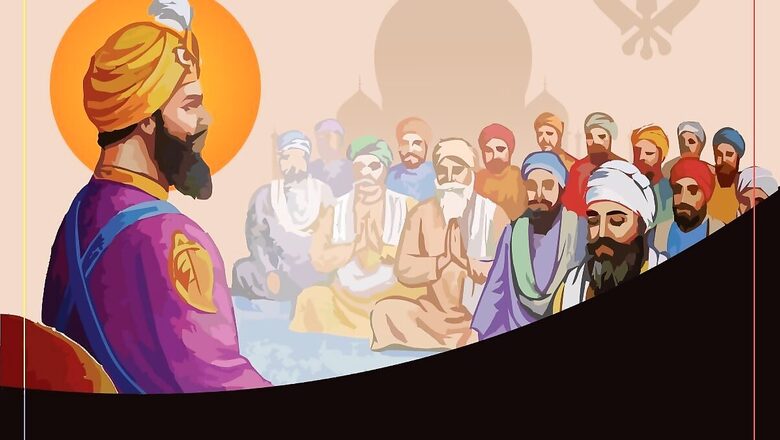
189
views
views
Guru Hargobind Sahib was always seen with two swords, reflecting the “Miri-Piri” ideology. The first sword, Miri, signified power, whereas Piri represented his spiritual abilities.
The sixth Guru of Sikhism, Guru Hargobind Sahib, was born on June 19, 1595, to Mata Ganga and Guru Arjan Dev, the fifth Guru of the Sikhs. Guru Hargobind is recognised as the driving force behind the Sikh community’s militarisation. With the community at receiving end of persecution by the Mughal rulers, he underlined the need for the populace to cultivate a martial mentality.
Guru Hargobind Sahib was always seen with two swords, reflecting the “Miri-Piri” ideology. The first sword, Miri, signified power, whereas Piri represented his spiritual abilities.
All You Need To Know
- Guru Hargobind Sahib was born in the Wadali area of Amritsar. At the age of 11, Guru Hargobind became the sixth Guru of Sikhs after his father, Guru Arjan Singh, was killed by the Mughal ruler, Jehangir.
- Guru Hargobind Sahib was an accomplished swordsman, horse rider, and wrestler. He raised an army called Sant Sipahi (Sain Soldiers) to combat the Mughals’ persecution of Sikhs.
- During Shah Jahan’s rule, the Mughal forces regularly attacked the Sikhs in Kartarpur, Amritsar, and elsewhere. Guru Hargobind fought with the army with courage and resilience, inspiring his fellow Sikhs and laying the foundation stone of the heritage of Sikh warriors.
- In addition to building the Army, Guru Hargobind actively promoted Sikhism by sending his adherents across the nation to spread Guru Nanak’s teachings. Guru Hargobind was imprisoned for twelve years by Mughal Emperor Jehangir for his efforts to build a formidable army.
- The Akal Takht, one of Sikhism’s five Takhts (seats of power), was established by Guru Hargobind. He was the Guru for 37 years, 9 months, and 3 days, the longest tenure of any of the ten Gurus. His army was able to overcome Mughal Emperor Shah Jahan four times.
- Guru Hargobind Sahib constructed the Lohgarh fortress near Amritsar. Its construction began somewhere in the 1620s and was finished in 1710.
- On March 3, 1544, he died in Kirtarpur, undivided Punjab. Before his death, Guru Hargobind Sahib chose his grandson Guru Har Rai as the heir to his legacy and the seventh guru in Sikhism.




















Comments
0 comment